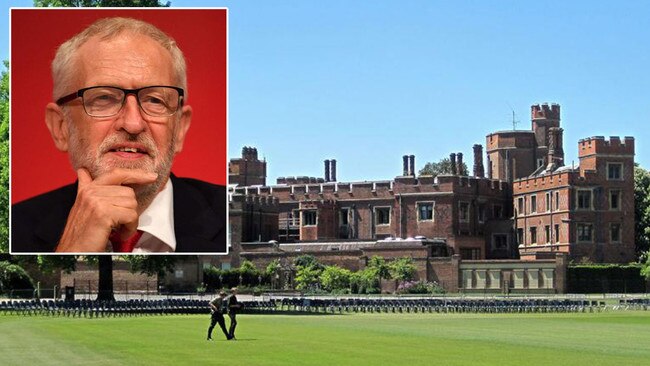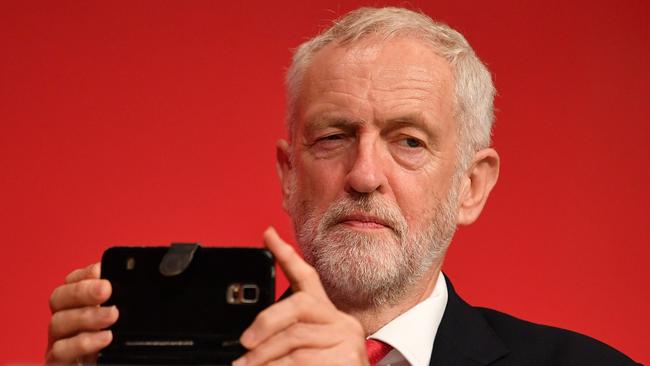Jeremy Corbyn vows to abolish private schools
Labour’s ‘act of national self-harm’ will integrate all private schools into the state sector.

The British Labour Party will go into the next general election with a firm plan - derided by critics as “an act of national self-harm’’ - to abolish all private schools and redistribute their properties and investments.
Labour’s dramatic education policy, agreed at its annual conference this morning, would see private schools integrated into the state sector if it won the election.
The education plan is just the latest in a raft of far-left Labour policies under leader Jeremy Corbyn and shadow chancellor John McDonnell, who want to nationalise key government services such as transport and housing.
While a general election has not yet been called, the ongoing Brexit uncertainty and parliamentary upheaval has increased the chances of one being held soon.
Labour members voted that if they were in government, all British private schools would have all public subsidies and tax privileges, including business rate exemptions and charitable status withdrawn. The education policy approved by the conference also says “endowments, investments and properties held by private schools to be redistributed democratically and fairly across the country’s educational institutions’’.

But the policy was immediately criticised by the Independent Schools Council chief executive Julie Robinson who said the move to abolish private schools would be national self harm, irreversible, damaging and limiting.
“The move is an attack on the rights and freedoms of parents to make choices over the education of their children,’’ Ms Robinson said.
“Abolition would represent an act of national self-harm. Tearing down excellent schools does not improve our education system. The repercussions would be irreversible and far-reaching, damaging educational opportunities and limiting life chances. Moreover, Labour’s plan would breach the European Convention on Human Rights on the right to choose education.’’
But Labour wants all of the country’s most revered and respected institutions such as Eton, Harrow and Rugby to be forced to sell off valuable land and buildings and all of their investments.
Universities will also be required to admit the same proportion of private school students as there are in the wider population. Private students currently make up seven per cent of students, meaning 93 per cent of the university intake will have to come from the state system.
The Labour members were told that even though a small single digit percentage of university students came from private schools they comprised 65 per cent of senior judges, 52 per cent of junior ministers, 44percent of news columnists and 16 per cent of university vice-chancellors.
Laura Parker, the national co-ordinator of Momentum, the hugely influential grassroots Labour support group, said the dramatic shift of centuries-old traditions was “a huge step forward in dismantling the privilege of a tiny, Eton educated elite who are running our country into the ground’’ She added: “Every child deserves a world class education, not only those who are able pay for it, and I’ll be proud to campaign on this manifesto pledge at the next election.’’
Shadow education secretary Angela Rayner said Labour was committed the “integration” of private schools into the state sector.
”We will set that commitment to making the whole education system fairer through the integration of private schools,” she said.
“Myself and (Labour shadow chancellor) John McDonnell will set out further steps the Labour government will take, but I can say today that our very first budget will immediately close the tax loopholes used by elite private schools and use that money to improve the lives of all children.”
Conference information for members said the existence of private schools was incompatible with Labour’s pledge to promote social justice, not social mobility in education.
‘It said: ’Labour is opposed to hierarchy, elitism and selection in education. Private schools reflect and reinforce class inequality in wider society’.’’




To join the conversation, please log in. Don't have an account? Register
Join the conversation, you are commenting as Logout